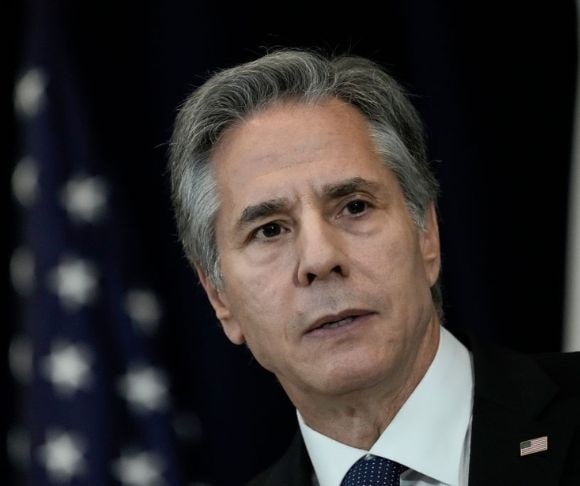When it comes to China versus the world, trust has been a commodity not in abundance. Secretary of State Antony Blinken met palpable skepticism in his recent meetings with Chinese President Xi Jinping and his government officials, exposing the fact that mistrust is the foundation for US-China relations. Why should the United States trust the People’s Republic of China (PRC) to act in a way that furthers the goals of peace and the rule of law?
Recent Shangri-la Dialogue Conference Speech Deepened Distrust of China
During the Shangri-la Dialogue in Singapore at the beginning of June, Minister of National Defense Li Shangfu explained Beijing’s worldview in unmistakable terms. For 36 minutes and 50 seconds, Li minimized China’s aggression in the Indo-Pacific and blamed the world’s ills on the United States. His speech was a propaganda tour de force that would have delighted Chairman Mao Zedong, who now rests in his crystal sarcophagus. Typical of the rhetoric were comments in the video of Li’s remarks:
“As we look around, we see a resurgence in ‘cold war’ mentality, rising regional conflicts and security threats one after another … People cannot but ask these questions. Who is disrupting peace in the region? … Mutual respect should prevail over bullying and hegemony … However, we do see some countries outside the region, exercise their hegemony, in the name of ‘freedom of navigation.’ They want to muddy-the-waters, so they can rake-in profits.”
The reference to the United States as “some countries outside the region” is too obvious to be overlooked. The Chinese defense minister added, “We will work towards a widely accepted, equitable, and fair system of security rules. China is ready to work with all other parties to improve multi-lateral mechanisms.” But when the opportunity came to put those stated intentions to work, he demurred. At the international conference, US Defense Secretary Lloyd Austin had a brief encounter with Li and shook his hand, but at a quick sidebar meeting to talk briefly, “The handshake came after China rejected a proposal from the US for Austin and Li to hold formal talks at the Shangri-La Dialogue,” Reuters reported.
China Projects Its Behavior on Others

General Jens Stoltenberg (Photo by Chip Somodevilla/Getty Images)
It is apparent that the United States has been more reactive than aggressive with criticism of China, while Beijing has no such reluctance to call out the United States as a global pariah. In psychology manuals, this is called projection – ascribing to others the behaviors you exhibit. The United States has just cause to distrust China’s motives and actions, and it is not alone. NATO Secretary General Jens Stoltenberg expressed concern about China being a reliable trading partner. He cited Europe’s ill-advised reliance on Russia for natural gas only to have that supply no longer available when the country attacked Ukraine. “We must not make the same mistake once again with other authoritarian regimes, not least China,” warned Stoltenberg, as Hui Min Neo reported in Barron’s. The article explained further, “Germany’s president Monday (June 19) urged Beijing and Washington to boost dialogue, as he hosted Premier Li Qiang at a time when China’s policies on Russia, trade and human rights are receiving an increasingly hostile reception in the West.”
After the well-publicized snub of Secretary Austin, Premier Li’s visit is not likely to do much to alleviate Sino-US-European tensions. The Biden administration has not developed a foreign policy toward China’s threats that creates optimism for a mutually beneficial solution. “President Biden’s moves to prevent war, with the best of intentions, are actually accelerating it because he is not saying to the Chinese what they need to hear, which is that the United States will defend itself, its allies and partners, and we will impose unacceptable costs on Chinese aggression,” Gatestone Institute senior fellow Gordon Chang told Fox Business on June 19.
What appears to be true is the relationship between the United States and China will go forward in an atmosphere of mistrust and skepticism. Perhaps such a geopolitical affiliation with an attending strategy is sustainable as a “new normal.” However, there should be no illusions on the part of the United States that Beijing will act in good faith. Shangfu asserted the PRC would practice “multi-lateralism and pursue ‘win-win’ cooperation.” For the CCP, “win-win” means it wins because it comes out on top, and it wins because the United States — incapable of competing – is soundly defeated.




